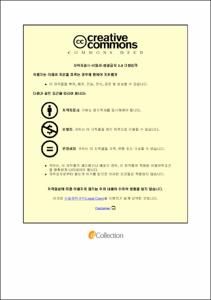남자대학생의 미의식이 외모관리행동에 미치는 영향
= Influence of Male Undergraduates' Aesthetic Consciousness upon Appearance Management Behavior : Centering on Hair Care, Skin Care, and Make-up
- Type
- Thesis
- Alternative Title
- 헤어관리, 피부 관리, 메이크업을 중심으로
- Advisor
- 최근희
- Department
- 예술대학원 뷰티예술학과
- Issued Date
- 2011
- Publisher
- 한성대학교 예술대학원
- Files in This Item:
-
-
Download
 000000897416.pdf
기타 데이터 / 694.1 kB / Adobe PDF
000000897416.pdf
기타 데이터 / 694.1 kB / Adobe PDF
-
Items in Repository are protected by copyright, with all rights reserved, unless otherwise indicated.